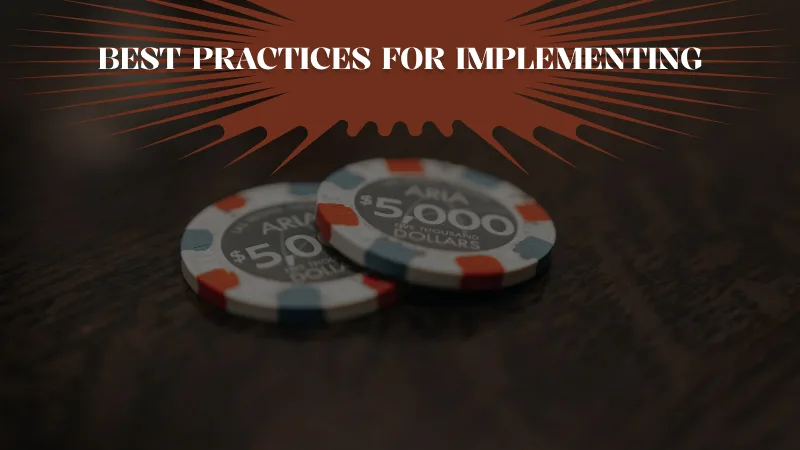Dive into the intriguing world of the Martingale System, a bold betting strategy that doubles stakes after losses. Discover its origins and potential risks!
You can easily sign up on 1xbet site and get access to all the best odds and promotions.
Martingale System Explanation Guide
What Is the Martingale System?

The Martingale System is a betting strategy where stakes are doubled after each loss‚ aiming to recover losses with one win․ Though simple‚ risks remain significant․
Origins and History of the Martingale System
The Martingale System‚ often associated with gambling strategies‚ has its roots in 18th-century France․ Initially‚ it was employed in basic games like coin tosses‚ capitalizing on human optimism that a loss streak would inevitably be followed by a win․ This system was embraced due to its simplicity‚ requiring players to double their bet after each loss to recover previous losses․ While it gained popularity in casino games such as roulette‚ blackjack‚ and baccarat‚ its allure persists across various wagering platforms․ Despite its historical use‚ the inherent risks cannot be overlooked․ The strategy’s reliance on infinite financial resources and absence of betting limits posed challenges even during its inception․ Understanding these historical intricacies is crucial for anyone considering applying the Martingale Betting Strategy today‚ particularly within the realm of Sportsbook Strategies․
Basic Principles of the Martingale Betting Strategy
The Martingale Betting Strategy is grounded in the principle of doubling one’s bet after each loss to recover past losses and achieve a profit equal to the original stake․ Often used within casino games‚ this approach presumes that a win is inevitable‚ thus requiring only one successful wager to recoup prior losses․ While simplicity remains its hallmark‚ the strategy’s effectiveness is critically dependent on unlimited financial resources and absence of betting limits‚ both of which are rarely feasible․ Furthermore‚ it assumes an infinite capacity for risk-taking‚ making it potentially perilous․ The strategy’s allure lies in its straightforwardness but demands a cautious evaluation of potential financial exposure․ A comprehensive understanding of these principles is crucial for anyone contemplating implementing the Martingale System‚ as the inherent risks can overshadow potential rewards․
Applications Beyond Casino Games
The Martingale System‚ while traditionally associated with casino games‚ finds intriguing applications beyond the gambling tables․ In financial markets‚ traders occasionally employ a modified version of this strategy to recover losses by incrementally increasing investment following setbacks․ Additionally‚ it is explored within certain betting systems‚ notably in Sports Betting Martingale‚ where participants double their stakes after losses‚ hoping for eventual profit recovery․ However‚ its application outside casinos requires careful scrutiny due to inherent risks․ The volatility of markets and sports outcomes introduces significant unpredictability‚ often challenging the assumption of an inevitable rebound․ While the strategy’s adaptability is notable‚ its fundamental reliance on unlimited resources and absence of constraints remains a critical concern․ As such‚ applying the Martingale Strategy in non-casino contexts necessitates a comprehensive understanding of potential pitfalls and limitations․
How Does the Martingale System Work in Sports Betting?

The Martingale System involves doubling your bet after each loss‚ aiming to recover losses with one win․ This strategy’s high-risk nature often challenges its practicality․
Adapting the Martingale Strategy for Sports Betting
Adapting the Martingale Strategy for Sports Betting involves tailoring its traditional principles to suit the dynamics of sports wagering․ Unlike casino games‚ sports betting offers varied odds and numerous outcome possibilities‚ making straightforward application challenging․ For effective adaptation‚ bettors often seek events with even odds‚ closely mirroring the 50/50 conditions found in original Martingale applications․ The strategy requires doubling stakes after each loss‚ intending to recover losses with the next win․ While this approach can be enticing‚ it’s critical to recognize inherent risks‚ including financial exposure and potential betting limits imposed by sportsbooks․ Furthermore‚ unpredictability in sports outcomes adds complexity‚ necessitating strategic foresight and disciplined bankroll management․ Despite its appeal‚ caution is paramount when employing the Martingale System in Sports‚ as unchecked optimism can lead to significant financial setbacks․
Examples of Martingale System in Sports Wagering
The Martingale System finds intriguing applications in sports wagering‚ albeit with substantial risks․ Consider a scenario in football betting⁚ a bettor starts by placing a bet on a match with even odds․ Upon losing‚ they double their stake on the next game‚ continuing this pattern until a win is achieved․ This approach aims to recoup previous losses and secure a small profit․ Another example involves tennis tournaments‚ where bettors might continuously back the favorite‚ doubling stakes after losses․ However‚ while these examples demonstrate potential profitability‚ they also highlight significant drawbacks․ Unpredictable sports outcomes can lead to prolonged losing streaks‚ rapidly escalating bets beyond manageable limits․ Moreover‚ betting limits imposed by sportsbooks can restrict strategy execution․ Understanding these examples underscores the importance of cautious application within Sportsbook Strategies․
Martingale Strategy Sportsbook Considerations
When integrating the Martingale Strategy within a Sportsbook‚ several vital considerations must be accounted for․ Primarily‚ the presence of betting limits can significantly hinder strategy execution‚ as sportsbooks often impose maximum stakes to mitigate their risk exposure․ Additionally‚ fluctuations in odds present another challenge; unlike static casino games‚ sports events exhibit variable odds that may affect potential returns and required stake adjustments․ Furthermore‚ bankroll management is crucial; without sufficient resources‚ bettors risk depleting funds quickly during inevitable losing streaks․ The psychological aspect also plays a role‚ as maintaining discipline under pressure is essential to avoid irrational decision-making․ Finally‚ understanding the specific rules and terms of the chosen sportsbook ensures compliance and prevents unforeseen obstacles․ These considerations underscore the complexity of employing the Martingale System effectively in sports betting environments․
Pros and Cons of Using the Martingale System

The Martingale System offers potential for short-term gains but poses significant long-term financial risks․ Its simplicity attracts users‚ yet high stakes and loss potential deter many․
Advantages of the Martingale System Explained
The Martingale System offers several perceived advantages that attract bettors․ Firstly‚ its simplicity makes it accessible‚ requiring only a basic understanding of wagering principles․ This straightforward approach allows for quick adoption without complex calculations or strategies․ Additionally‚ the system promises recovery of losses with a single win‚ providing psychological reassurance to players seeking immediate results․ Furthermore‚ consistent application can yield short-term profits‚ appealing to those who prefer brief gambling sessions․ The allure of recouping losses swiftly contributes to its popularity among risk-takers and thrill-seekers․ Moreover‚ the strategy promotes discipline by enforcing systematic betting patterns‚ which can help in maintaining control over impulsive decisions․ However‚ while these advantages are enticing‚ they must be weighed against inherent risks and potential financial pitfalls‚ as large losses can quickly overshadow any short-lived gains․
Disadvantages and Risks of the Martingale Wagering System
The Martingale Wagering System carries significant disadvantages and risks that often outweigh its potential benefits․ Primarily‚ it demands an extensive bankroll due to the exponential increase in bet sizes following losses․ This requirement poses a substantial financial burden‚ particularly during prolonged losing streaks where funds can be depleted rapidly․ Moreover‚ the system’s reliance on continuous doubling encounters practical limitations imposed by betting caps at most sportsbooks‚ effectively halting the strategy before recovery is possible․ Additionally‚ the inherent uncertainty of sports outcomes exacerbates these challenges‚ as unpredictable events can lead to frequent losses․ The psychological pressure from escalating stakes also induces stress and impulsive decisions‚ further compromising effective gambling practices․ Consequently‚ while initially appealing‚ the Risk of Martingale System implementation reveals itself as a high-stakes gamble with potentially adverse financial consequences․
Comparisons with Other Betting Systems
When comparing the Martingale System to other betting strategies‚ notable distinctions arise regarding risk and application․ Unlike the Fibonacci system‚ which gradually increases stakes‚ Martingale’s aggressive doubling can lead to rapid bankroll exhaustion․ The D’Alembert method offers a more conservative approach by adjusting bets incrementally after losses‚ reducing financial strain compared to Martingale’s steep escalation․ Meanwhile‚ the Kelly Criterion‚ grounded in probability theory‚ optimizes bet sizes based on odds and bankroll‚ promoting sustainable growth over Martingale’s high-risk progression․ In contrast‚ the Labouchere strategy involves crossing numbers off a sequence for bet determination‚ offering flexibility but complexity‚ unlike Martingale’s simplicity․ Ultimately‚ while the Martingale System promises quick recovery of losses‚ its inherent risks and reliance on substantial funds distinguish it from other methods‚ each presenting unique advantages and drawbacks․
Martingale System Risk Management in Sports Betting
Effective risk management is crucial when employing the Martingale System in sports betting‚ as its aggressive nature can lead to rapid financial losses without prudent strategies․
Understanding the Risk of Martingale System
The Martingale System presents inherent risks that must be thoroughly understood to avoid detrimental outcomes in sports betting․ Its core premise—doubling stakes after losses—creates exponential financial exposure‚ demanding substantial bankrolls to withstand potential downturns․ This methodology assumes eventual recovery through a single win‚ yet overlooks the unpredictable nature of sports events where long losing streaks can occur․ Additionally‚ betting limits imposed by sportsbooks pose significant barriers‚ curtailing the ability to continue doubling bets and thereby negating the system’s foundational principle․ The psychological pressure from escalating bets further compounds risk‚ often leading bettors to make impulsive decisions under stress․ Consequently‚ while initially appealing for its simplicity and promise of loss recuperation‚ the Risk of Martingale System becomes evident as a high-stakes gamble with potentially severe financial repercussions․
Strategies to Mitigate Potential Losses
Mitigating potential losses when employing the Martingale System in sports betting requires strategic planning and discipline․ First‚ establishing a strict budget is crucial; bettors should define a maximum loss threshold they are willing to endure․ This prevents financial overextension during inevitable losing streaks․ Additionally‚ selecting lower-stake bets can help manage risk‚ as it reduces the rapid escalation of wager amounts․ Implementing a stop-loss limit‚ where betting ceases after a predetermined number of consecutive losses‚ also curtails significant financial damage․ Diversifying bets across different sports or events can further distribute risk and avoid heavy reliance on a single outcome․ Lastly‚ combining Martingale with other strategies like the Kelly Criterion allows for more balanced wagering‚ aligning bet sizes with calculated probabilities rather than aggressive doubling‚ ultimately fostering a more sustainable approach․
Impact of Betting Limits on the Martingale Strategy
The effectiveness of the Martingale Strategy is significantly compromised by the presence of betting limits in sportsbooks․ These restrictions prevent bettors from doubling their stakes indefinitely‚ a fundamental mechanism of this system designed to recover losses with a single win․ When confronted with these caps‚ reaching the maximum allowable wager after consecutive losses becomes inevitable‚ halting the progression and rendering the strategy ineffective․ Additionally‚ hitting these limits without securing a win results in substantial financial setbacks․ The psychological stress associated with approaching these thresholds can lead to impulsive decisions‚ further undermining rational betting practices․ Consequently‚ while theoretically promising continuous recovery potential‚ the reality of imposed limits exposes the Martingale Strategy’s inherent vulnerabilities‚ highlighting its dependence on unrestricted wagering environments to function as intended․
Best Practices for Implementing the Martingale Strategy

Implementing the Martingale Strategy effectively requires strict bankroll management‚ setting clear loss limits‚ and cautiously selecting bets to minimize financial risks amidst its aggressive wagering nature․
Martingale Betting Tips for Beginners
For beginners venturing into the Martingale Strategy‚ a cautious approach is paramount to minimize inherent risks․ Initially‚ set a budget that you can afford to lose without financial strain‚ as this method can quickly escalate costs․ Start with smaller bets to extend your bankroll’s longevity during losing streaks․ Familiarize yourself with betting limits imposed by sportsbooks to avoid scenarios where doubling stakes becomes impossible‚ rendering the strategy ineffective․ Incorporate stop-loss measures‚ deciding in advance when to halt betting after consecutive losses to prevent substantial financial losses․ Diversify your bets across different events to mitigate potential risk concentration․ Additionally‚ consider blending Martingale with less aggressive strategies to balance potential gains against risks․ Practicing patience and maintaining discipline are crucial to navigating the psychological pressures of escalating wagers within the Martingale framework․
Advanced Martingale System Techniques
Advanced techniques in the Martingale System involve strategic modifications to mitigate its risks while maximizing potential gains․ One approach is the Grand Martingale‚ which adds an additional unit to the doubled stake after a loss‚ slightly increasing profit upon winning but requiring a larger bankroll․ Another technique is employing a reverse Martingale‚ where bets are doubled after wins rather than losses‚ capitalizing on winning streaks while limiting losses․ Implementing variable stakes based on event analysis can also optimize outcomes‚ adjusting wagers according to perceived value or probability․ Integrating statistical models to assess bet viability enhances decision-making‚ offering a calculated edge․ Additionally‚ diversifying across markets and events reduces the impact of isolated losses․ By refining these methods‚ bettors aim to navigate the Martingale’s inherent volatility‚ transforming its simplistic framework into a more sophisticated wagering strategy․
Integrating Martingale into Sportsbook Strategies
Integrating the Martingale Strategy within sportsbook strategies requires careful consideration to counteract its inherent risks․ Initially‚ aligning the strategy with a well-researched analysis of sporting events can enhance decision-making and outcome predictability․ Understanding specific sportsbooks’ limitations‚ such as maximum bet caps‚ is crucial to prevent reaching insurmountable barriers during losing streaks․ Diversifying wagers across different sports and leagues minimizes dependency on singular outcomes‚ distributing risk more effectively․ Implementing bankroll management practices‚ like setting predefined loss limits‚ ensures financial sustainability despite the strategy’s aggressive nature․ Additionally‚ combining Martingale with alternative betting systems‚ such as the Kelly Criterion‚ offers a balanced approach by adjusting stakes based on calculated probabilities rather than mere doubling․ By integrating these elements‚ bettors aim to leverage the Martingale’s potential while mitigating its pitfalls‚ crafting a more resilient sportsbook strategy․
